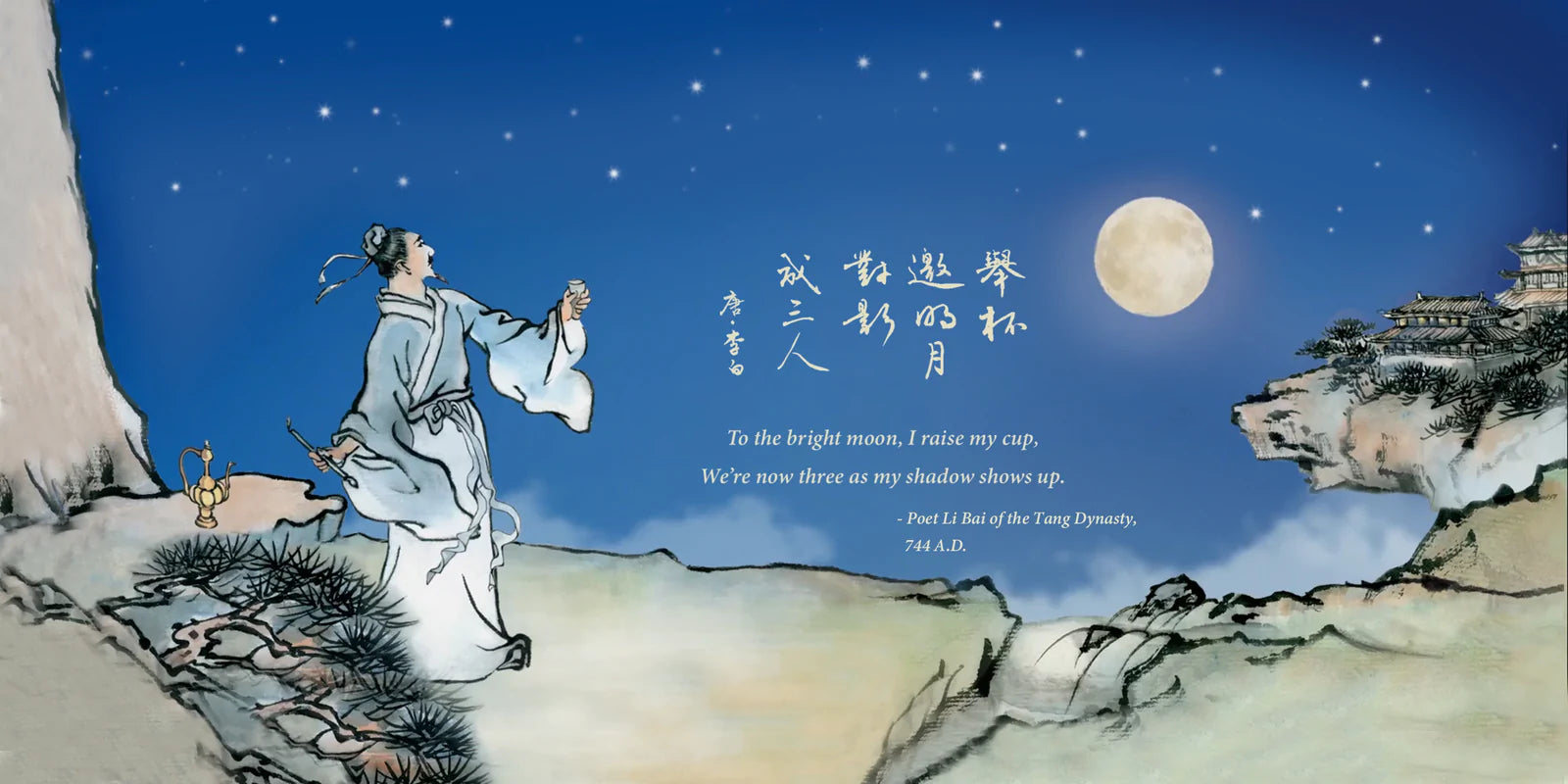
Poet Li Bai and the Moon
Damian Robin, Contributing Writer
In honor of the Moon Festival, also known as the Mid-Autumn Festival, we are releasing our new Li Bai Poet Fan. One of the most famous poets in all of world literature, Li Bai is depicted gazing at the moon, an activity that brought him comfort and inspiration.
Who was Li Bai? He was a poet who lived from 701 to 762 during China’s Golden Age, the Tang Dynasty.
He never finished his formal education but journeyed far and wide, up and down China’s geographic and social landscape. He personally met the Emperor, had jobs in court, was twice swept up in political intrigue, and at one time was banished.
The Tang was a time of great cultural and economic improvement. This was something Li Bai experienced directly in his life-long wanderings and he wrote about it. For instance, one of his poems is “The River Merchant’s wife,” a love song on the longing of a young bride for her husband who is away on an extended business trip. The poem itself is a symbol of the prosperity of the Tang and also the hardship required to fuel such success.
Li Bai himself was away from home for long periods. Although he was born in a small town in modern day Kyrgyzstan, his wife came from nobility. She did not need Li Bai to support her and with few responsibilities at home, he went away to wander, as many Daoists did.
Few of Li Bai’s poems were gathered together in his lifetime even though his work was well known and admired. He was not concerned with fame or a literary career but only lofty political and spiritual pursuits. He would give his poems to people as gifts or payment for the lodging or food and entertainment they provided.
To console himself in times alone, he would drink wine, something he wrote many poems about. When alone, he also took great solace from the moon. It evoked his deep inner yearning. The most recited poem in Chinese is Li Bai’s “Quiet Night Thoughts” in which moonlight near his bed invokes thoughts of home.
Li Bai’s bond with the moon was so strong that there is a story that he tried to grasp the moon’s reflection from a boat on a lake, leading to his drowning. Li Bai often had the moon appear in his poems—as in the four lines on the Shen Yun Shop’s Li Bai Poet Fan. The quatrain on the fan holds the first four lines of a well loved Li Bai poem. It plays on the idea of the moon and his shadow, one made by the other’s presence. However you interpret them, Li Bai and his poetry are cultural treasure worth celebrating.







